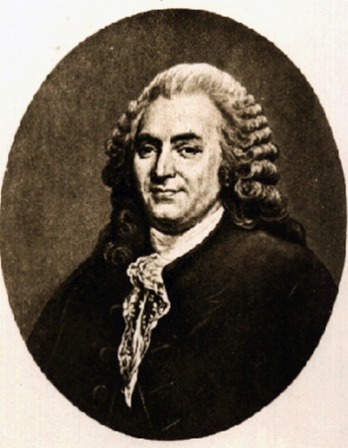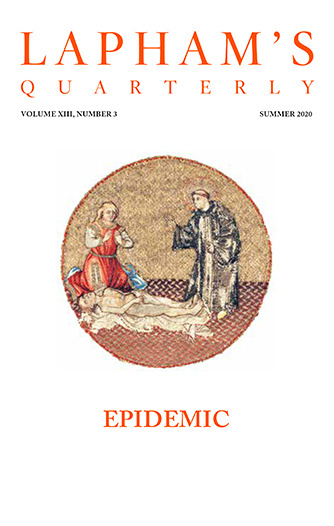Will and energy sometimes prove greater than either genius or talent or temperament.
—Isadora Duncan, 1902Earthquake
Charles Davy feels the aftershocks.
It was on the morning of this fatal day, between the hours of nine and ten, that I was set down in my apartment, just finishing a letter, when the papers and table I was writing on began to tremble with a gentle motion, which rather surprised me, as I could not perceive a breath of wind stirring. While I was reflecting with myself what this could be owing to, but without having the least apprehension of the real cause, the whole house began to shake from the very foundation, which at first I imputed to the rattling of several coaches in the main street, which usually passed that way, at this time, from Belém to the palace, but on hearkening more attentively, I was soon undeceived, as I found it was owing to a strange, frightful kind of noise underground, resembling the hollow, distant rumbling of thunder.
Upon this I threw down my pen and started upon my feet, remaining a moment in suspense about whether I should stay in the apartment or run into the street, as the danger in both places seemed equal, and still flattering myself that this tremor might produce no other effects than such inconsiderable ones as had been felt at Madeira. But in a moment I was roused from my dream, being instantly stunned with a most horrid crash, as if every edifice in the city had tumbled down at once. The house I was in shook with such violence that the upper stories immediately fell, and though my apartment (which was the first floor) did not then share the same fate, yet everything was thrown out of its place in such a manner that it was with no small difficulty that I kept my feet, and expected nothing less than to be soon crushed to death, as the walls continued rocking to and fro in the frightfullest manner, opening in several places, large stones falling down on every side from the cracks, and the ends of most of the rafters starting out from the roof. To add to this terrifying scene, the sky in a moment became so gloomy that I could now distinguish no particular object; it was an Egyptian darkness indeed, such as might be felt, owing, no doubt, to the prodigious clouds of dust and lime raised from so violent a concussion, and as some reported, to sulfurous exhalations, but this I cannot affirm; however, it is certain I found myself almost choked for near ten minutes.
Outside I found a prodigious concourse of people of both sexes, and of all ranks and conditions, among whom I observed some of the principal canons of the patriarchal church, in their purple robes and rochets, as these all go in the habit of bishops; several priests who had run from the altars in their sacerdotal vestments in the midst of their celebrating Mass; ladies half-dressed, and some without shoes; all these, whom their mutual dangers had here assembled as to a place of safety, were on their knees at prayers, with the terrors of death in their countenances, every one striking his breast and crying out incessantly, Miserecordia meu Dios!
In the midst of our devotions, the second great shock came on, little less violent than the first, and completed the ruin of those buildings which had been already much shattered. You may judge of the force of this shock when I inform you it was so violent that I could scarce keep on my knees, but it was attended with some circumstances still more dreadful than the former. On a sudden, I heard a general outcry: “The sea is coming in, we shall be all lost.” Upon this, turning my eyes toward the river, which in that place is nearly four miles broad, I could perceive it heaving and swelling in the most unaccountable manner, as no wind was stirring. In an instant there appeared, at some small distance, a large body of water, rising as it were like a mountain. It came on foaming and roaring, and rushed toward the shore with such impetuosity that we all immediately ran for our lives as fast as possible; many were actually swept away, and the rest above their waist in water at a good distance from the banks. For my own part, I had the narrowest escape, and should certainly have been lost had I not grasped a large beam that lay on the ground till the water returned to its channel, which it did almost at the same instant, with equal rapidity. As there now appeared at least as much danger from the sea as the land, and I scarce knew whither to retire for shelter, I took a sudden resolution of returning back, with my clothes all dripping, to the area of St. Paul’s. Here I stood some time and observed the ships tumbling and tossing about as in a violent storm; some had broken their cables, and were carried to the other side of the Tagus; others were whirled around with incredible swiftness; several large boats were turned keel upward; and all this without any wind, which seemed the more astonishing. It was at the time of which I am now speaking that the fine new quay, built entirely of rough marble, at an immense expense, was entirely swallowed up, with all the people on it, who had fled thither for safety, and had reason to think themselves out of danger in such a place. At the same time, a great number of boats and small vessels anchored near it (all likewise full of people, who had retired thither for the same purpose) were all swallowed up, as in a whirlpool, and nevermore appeared.
This last dreadful incident I did not see with my own eyes, as it passed three or four stones’ throws from the spot where I then was, but I had the account as here given from several masters of ships who were anchored within two or three hundred yards of the quay and saw the whole catastrophe. One of them in particular informed me that when the second shock came on, he could perceive the whole city waving backward and forward, like the sea when the wind first begins to rise; that the agitation of the earth was so great even under the river that it threw up his large anchor from the mooring, which swam, as he termed it, on the surface of the water; and that immediately upon this extraordinary concussion, the river rose at once near twenty feet, and in a moment subsided, at which instant he saw the quay, with the whole concourse of people upon it, sink down, and at the same time every one of the boats and vessels that was near it was drawn into the cavity, which he supposed instantly closed upon them, inasmuch as not the least sign of a wreck was ever seen afterward.
About This Text
Charles Davy, from “The Earthquake at Lisbon.” “There was never a finer morning,” Davy writes of the day in question. “The sun shone in its full luster.” The 1755 earthquake occurred at the height of Portugal’s colonial power, when Lisbon was one of the wealthiest cities in the world. About a quarter of its population was killed in the earthquake; the destruction reached as far as the shores of Morocco. In 1931 Walter Benjamin made the earthquake the subject of one of his radio programs for children, describing its gruesome details and reading Davy’s report over the air.




